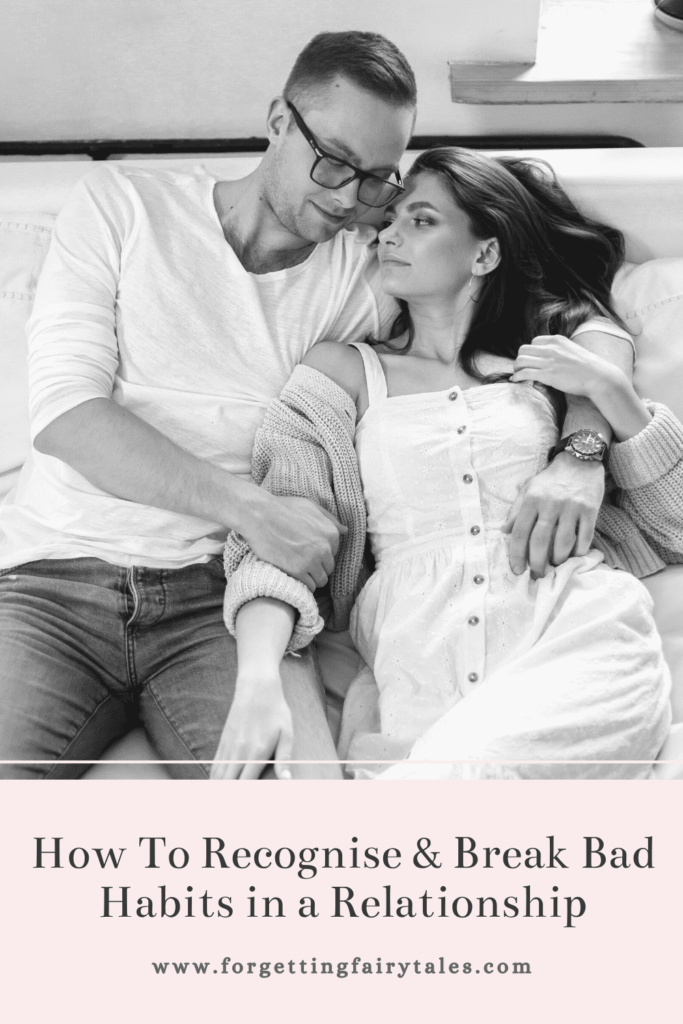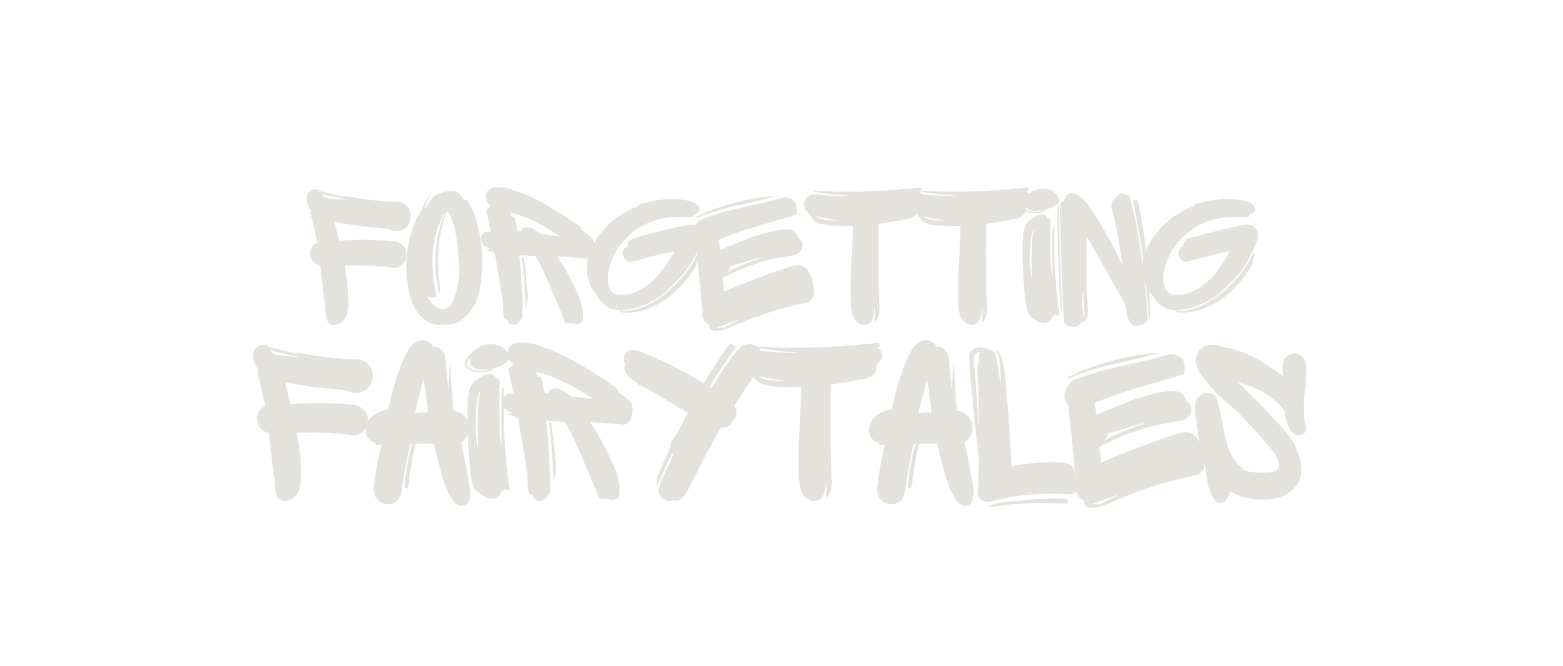Want to become aware of how you act, what you do and which areas you need to work on in your relationship? To be able to recognise and break, bad habits in a relationship – before they break the relationship, itself? Then you’ve come to the right place..
See, we all have habits. Some which are engrained in us from a young age. (As simple as cleaning our teeth!) Some which develop over time (but have impact on our relationships.) And some which are specifically developed within relationships.
The thing is – you have to be aware of your habits because they create consistent, repeated actions or behaviour.
So, which habits are good? Which habits are bad? And what impact do they have – both on yourself, and your relationship?
In this post, we’ll break it all down – giving you the power to recognise and break bad habits in a relationship so that you strengthen your relationship as oppose to damage it.
Sounds good? Just what you want / need? Then let’s start from the top, shall we?
How Habits Work:
So as mentioned – everyone has habits. Many actually.
Habits are learnt through conscious or subconscious repetition. These may be embedded in you from an early age, or developed over time.
For this reason you can often find that habits creep up you…
See, when actions are repeated enough – in a little and often way – they become engraved in our routine. (Whether you want them to or not!)
But that’s why you have to recognise them and evaluate them, to see if you want to keep or change them.
The great thing is – habits aren’t born in us. We form them, which means we have the power to choose them and change them. (It just takes a little work!)
Common Bad Habits In a Relationship
So what are some bad habits in a relationship, to start to get you thinking about your own? Well…
- Trying to change or “improve” your partner, without simply accepting them for who they are, or supporting them to become a better, happier version of themselves. (Remember: any change has always got to come from THEM, not YOU. And if you’re trying to change them that significantly, it really does raise the question as to whether you’re with the right person.)
- Trying to change yourself to feel more loved and accepted, but compromising on who you really are and what’s important to you. (Know that this will never work long-term. Always stay true to YOU and only desire a person who truly loves you for who you really are.)
- Seeking constant reassurance and pushing your insecurities on your partner.
- Being needy, clingy or demanding and putting too much pressure on your partner.
- Snooping, spying and checking up on your partner, both on social media and off. It’s obsessive, unhealthy and makes you become paranoid, even when – in most cases – you don’t need to be! (This is usually led by trust issues, fears or relationship anxiety, but this habit only actually makes these things worse!)
- Allowing your irrational worries grow and grow. (Do they love me as much as I love them? Are they happy? Will they leave me?) Without getting help for this or learning to help yourself, it can lead to pretty damaging behaviours…
- Snapping, being irritable or passive aggressive. Or, worse still, shouting, over-reacting or blowing instead of being able to have a calm, mature discussion / conversation.
- Regularly moaning or criticising your partner, picking up on pretty-much every single thing. And not being able to let things go. Or, constantly moaning about your partner to other people! (Is there really any need?)
- Nagging, lecturing or pleading with your partner to try to get your own way. (Yes, maybe you like to think you wear the pants in the relationship, but this should naturally be the dynamics – you shouldn’t be forcing it unfairly! It will only wear your partner down and comes across as too controlling!)
- Allowing your relationship to take over, losing your independence, pulling away from friends and making your partner your ENTIRE WORLD. (Yes they should always be highly important to you, but there has to be a balance – otherwise it actually just becomes smothering and will harm your relationship more than anything else!)
All of these bad relationship habits are ones which will directly impact your partner – whether that’s a habit which is an action, in that moment, or a habit that results in an action. For example…

Deeper Bad Habits in a Relationship
You can break bad habits in a relationship down further, and explore your bad habits in more depth, to get a greater understanding of the full picture (and its impact.)
Let’s take: Bringing up the past.
You could have a bad relationship habit where you bring up the past.
In this case, you’re doing it because you’re trying to protect yourself, remind your partner of it and try to stop it from happening again.
But instead, it just feeds bitterness and resentment in the relationship. It makes it toxic and still doesn’t prevent whatever you’re dreading from happening again.
In fact, if anything – you’re only making it MORE likely to, by pushing your partner away.
Or, let’s take: Avoiding conflict.
You may think this is a positive habit that stops arguments, and in the moment, yes, it does. However it doesn’t resolve the issue.
You’re brushing it under the carpet, which makes this – ultimately – one of the bad habits in a relationship, as the issue itself will continue to remain and crop up again and again.
Deeper Bad Habits in a Relationship
Similarly: Not setting relationship boundaries.
Perhaps you’ve had bad past experiences in relationships which have knocked your confidence and so whenever you go into new ones – you crave love and love alone.
This becomes your core focus and you don’t set strong or firm relationship boundaries for what you will and will not tolerate and how a healthy relationship should be.
Although initially, things may be great and breezy, when you keep this habit, and start to accept things you perhaps shouldn’t – it gets the dynamics wrong in the relationship and ultimately, you’re not building the foundations for a fair, happy and healthy relationship that can last long-term.

Deeper Bad Habits in a Relationship
There will also be habits that you have, that aren’t directly to do with the relationship but still affect it. For example:
Let’s take: Spending hours scrolling through social media.
This is just what you do, how you spend your “free time” you may think. And sure, everyone needs that time out.
But what if it’s taken over? What if you’re spending TOO much time and neglecting your relationship?
Is it potentially a bad habit then? Is social media negatively impacting your relationship? That’s for you to weigh up and consider…
Or: Expecting your partner to be a mind-reader.
You don’t open up, because you want – and think – your partner will “just know” what’s wrong.
They don’t, always. (And often, this could be fair or reasonable.) So you keep things to yourself and think, “oh well, I’d better not ‘offload’!”
However, this creates a distance between the two of you, and can also make slight resentment grow. It’s a behaviour that then spirals into other bad behaviours or negative habits, like:
- Snapping or becoming irritable.
- Having a go at your partner for little things (when actually, there’s more to it.)
You see? So you want to really analyse how you act in different ways / areas of your relationship and how it all begins to link together / tie in.
*** Don’t miss these sneaky HIDDEN bad habits that affect your relationship, when weighing up which bad relationship habits you have. ***
How To Break Bad Habits in a Relationship
So now you’ve increased your awareness of the common bad habits in a relationship and the kind of ones that you may do / have, let’s really break down the process of BREAKING these bad habits, shall we? (Uh huh, we’re about to get into the “nitty gritty” of it all now, so buckle up!)
This is the fundamental five-step process to break bad relationship habits. Read it, understand it, remember it, and follow it – in order to strengthen your relationship…
1) Recognise What You’re Doing
So we’ve already got you thinking about your bad relationship habits by outlining some of the most common bad habits in a relationship and how to determine your own.
However, the clearer and more specific you get with it, and the better you understand your behaviour, the easier it will be to change it.
What Bad Relationship Habits Do You Have?
Grab a pen and paper and let’s work through this properly.
- Look at your regularly / daily habits. Consider if any of these impact your relationship – in either a positive or negative way. Not sure? Write them down, just in case.
- Look at the relationship habits you know that you have. Again, both the good ones and the bad ones, plus any “neutral” ones that you think have no extreme effects at all. Then write down the ones you think are worth weighing up further.
- What healthy and unhealthy relationship habits can you think of? And how many of these do you have? How often do they happen? Plus to what degree?
2) Understand Why You’re Doing It
The next key step, after awareness, is to recognise WHY you’ve developed these bad habits in a relationship.
- What caused the behaviour to begin with?
- What triggers the behaviour? And is your reaction / response always now fair, necessary or reasonable?
- Are you holding onto bad past experiences from other people – which caused you to act in this way? Or perhaps there’s still resentment in the relationship that developed from something that happened between the two of you? Where has this fundamentally stemmed from?

3) Evaluate The Impact
The next step to break bad habits in a relationship is to take a step back. Ask yourself:
- What do I ultimately want in this relationship?
Let’s remind yourself of that. From there, let’s flip it back to the bad habit and establish:
- What specifically am I looking to achieve when I do this bad habit?
You then need to ask yourself:
- What is my bad habit actually achieving?
- What impact does my bad habit usually have?
- Is this bringing me closer or further away from my overall relationship goals?
Whats more:
- Does this habit make me feel like me? (The real me, or the “me” I want to be.)
- Is it positive or rewarding for me at all? And any “reward” / satisfaction I do get from it, does it actually last?
- How does it make me feel in the moment? And how does it make me feel after?
- What’s the actual benefit of this habit? (If any.)
- Could I reach the same goal in a better way? How could I go about this differently?
Embed Those Strong Reasons “Why”…
Once you have evaluated the impact, you’re not quite done. (Not just yet!)
Because once you’ve analysed you need to embed your answers in your mind. This is essential for the change that will then – more likely – come.
See when it comes to achieving any goal, you can use the power of “pain” & “pleasure” to increase your chances of success.
To do this, I want you to ask yourself the following questions and write down the answers from a bubble saying “Why I WILL Break This Bad Relationship Habit”…
Ask yourself:
- What negative impact is this habit having on my relationship?
- How is it affecting us, every time I do it?
- What could happen if I continued with this bad relationship habit? What could it lead to? And what would that cost me? How would it hurt me? Would there even be an “us” left?
- Why don’t I want to carry on behaving this way?
- Why ISN’T it worth it? What do I have with my partner that makes it so special?
- If I can break this bad relationship habit (and I will!), what will it mean for us?
- How will our relationship get better and stronger if I can break this bad relationship habit?
- What would it enable us to be / do / have, if I broke this relationship habit?
Getting The Balance Right:
When evaluating the impact of your bad relationship habits, you want to get the balance right.
See, you can’t fear failure, beat yourself up every time you mess up and if you slip back into old habits; or let it feel so high-pressured for change that you end up breaking YOURSELF!
If you do, the “pain” of change and what it will take to change, will outweigh the “pleasure” you’ll get from it, and you’ll start to brush aside those all-important reasons, ignore them, and stay in the same place!
So it’s really important that you see the need and value for change, but associate the “changing process” with “pleasure”. See, you’re kind of tricking your mind – but it’s clever!
It’s also vital. You need to see the harsh truth of what you’re doing to your relationship and why it can’t stay this way…
Not so that it stresses you out or becomes overwhelming but so that it leads to better, more positive things and STOPS those bad habits in their tracks!

4) Find a New Habit To Replace It
What next, what next? Well once you’ve recognised, understood and evaluated your bad habits in a relationship, you then need to find a new habit to replace it with!
After all, you can’t just STOP something – not without anything else at all to take its place. A habit is always replaced with a new habit, no matter how big or small that new habit is.
Now it’s important to realise that change – in most cases – won’t be easy. It’ll take time and different attempts, with plenty of “failures” along the way, but that’s okay.
It’s all part of the process of PERMANENTLY shifting your ways.
But with those strong reasons “why”, you’ll stick with it until you get there.
Just keep trying different things. Brainstorm new ways in which you can act / respond, instead of going about it in the way you usually would with your bad relationship habit.
What will you do when your habit has been triggered? What will you try instead? Get thinking!
Bad-Habit-Breaking Example
To make sure you understand the process (so far) when it comes to breaking bad habits in a relationship, let me give you an example for what you would do at each stage. (Just briefly.)
Remember, you’ll go into far more depth with it than this, but it will pretty much work like this…
The Bad Habit: Let’s take the example of NAGGING in a relationship. After all, it’s very common!
— Get Specific — When the habit is fairly broad, get as specific as you can. EG. When do you nag the most? In what kind of situations? Over what kind of things? Which type of nagging is normal and common? (E.G. Can you do the dishes now, please?!) Vs. which nagging is unnecessary, excessive and starting to wear thin?
Why You Do It: Now you’ve got clear on the type of nagging you’re looking at, you may dig deeper to reveal, the worst nagging is about time-keeping, and you do this because you’ve been let down so many times in the past. You therefore nag: 1) to try to prevent being let down again. And: 2) because you’re not thinking, you’re just acting, and letting fear / panic take over! Ultimately, you nag because you don’t want to feel hurt, and you don’t want the consequences of if you DON’T nag and your partner doesn’t do / stick to, whatever you’re nagging about.
The Impact: Ultimately however, it just creates tension or arguments in the relationship, because, well, who wants to be constantly told what to do?! You’ll do the exercise to stir up the most “pain” and “consequences” that the nagging is causing, then…
New Habit Replacement: When looking at what to do instead of nagging, you may break it down like this:
- Rationalise In: If you know you’re nagging when you don’t need to (and realise that actually, what you’re nagging about, isn’t a big deal), you may try, first, taking a step back every time you go to nag and instead, talk yourself through it to stop yourself from doing it.
- Write It Out: You may know you don’t like to keep things in, so instead of nagging out of fear or frustration, instead, you’ll get these fears / frustrations out on paper in the moment, and process it that way – trusting that your partner will do the “right thing” when he needs to. You’ll journal to yourself, instead of nagging at him / her.
- Say It Just Once: Now there’s a difference between saying something, and nagging. So you may play around between getting the balance right with this instead, and finding peace by saying what you need JUST ONCE, then trusting that this is enough and knowing that saying it multiple times, won’t actually make a difference. If what you’re sating really matters and it doesn’t;t change, you can then sit down and have a conversation about it from there. But in that moment, you’ll only say it once, then monitor it, see what happens and if it carries on, before having a two-way conversation about it later (if needed.)
- Address The Deeper Issues: You may realise that the deeper fears / issues driving the nagging won’t go away on their own and so that’s when you decide to address it head on – either by swatting up, reading books & self-studying, or by getting professional help from a specialist coach.
- RESEARCH IT: If you’re ever feeling unsure about what to replace your habit with, do some research on it. I mean, look here – here’s 10 alternatives to nagging, and that appeared first on google search! There’s ample of information on the internet that you can tap into and use, to help yourself. So make the most of what’s at your fingertips. You don’t need to feel lost!

5) Stick With It, Recognise Your Progress & Reward It
Are you starting to see that the process to break bad habits in a relationship is actually achievable and manageable when you break it all down?
The final stage after all of this, is to simply stick to your goal of habit-changing and stay committed to it. You also want to make sure you reward and recognise it, every time you do replace a habit – in that very moment.
Now if you’re not used to actively working on strengthening your relationship, the thought of making something like this so goal-orientated and results-driven, may be unfamiliar, but stick with it!
Habits are built from repeated emotional rewards, which includes those feeling of accomplishment!
See, the more often you feel successful at what you’re trying to do – the more likely you are to do what made you feel successful. (I.E. stick to those new habits!)
Success breeds more success, you see. And any “reward” you get or feel from it, reinforces the behaviour of daily practice.
For this reason, you want to recognise when you challenge a bad habit and break – every single time you successfully stick to it – and actively acknowledge it so that you get that feel-good feeling for it.
Learn to associate the new habit / behaviours to a positive feeling of satisfaction and “victory”, each time you do them.
If you don’t fall into a bad habit just one time, you can’t expect your partner to give you a pat on the back! It’s just once and they may not even know that, actually, it’s a fairly big deal for you. (You’re challenging your behaviour!)
But thats why initially, the reward has to come from within… Be your own best mate, rooting for yourself and your own personal development!
Then, once the change lasts and sticks, the two of you can both celebrate the healthy new stage that your relationship is now in.
Knowing Where To Start
Now there’s a lot of information to digest here. You want to break the bad habits in your relationship but may be wondering where to start! A couple of key considerations for this:
First, how frequent is this bad habit? The first habit you should break is the one that happens regularly – weekly or daily, as it’s the easiest to focus on when you know it’s cropping up a lot.
Second, how prominent is it? If you perform your habit multiple times a day, it’s easier to recognise (usually, after it’s happened!) but it’s hard to remember in the moment.
You therefore need to consider how you’ll bring an awareness to it. So this could be – setting a reminder alarm every hour or so initially or writing a message or reminder on your hand.
It may sound silly, but it’s not. To consistently change the habit, you want to dramatically increase awareness of it (especially in the moments you need), so that you can fight the urges to respond how you usually would or do what you’d typically do.
Some habits are harder to break than others…
Thinking habits are one of the hardest to stop. (E.G. Trying to stop excessive worrying.)
After all, we’re often not even fully aware of our thoughts and there will be many, deeply embedded in our subconscious that we may not even know about or be able to reach.
It’s not impossible though. You just may need to do some additional learning to understand your mind a little better. Plus, professional support and accountability from a coach. (And that’s where I can come in!)
Be Kind, and Patient With Yourself
Remember – this is exciting. It’s your turning point and will lead to a far happier, healthier and stronger relationship. So don’t allow yourself to become overwhelmed.
Just focus on ONE habit at a time – focus on it, break it, establish your NEW habit to replace it and work through everything you need, bit by bit.
Don’t overload yourself with all of the desired habit changes in one go – it’s too much and will make you more likely to fail, not succeed.
You don’t have to try to bite off EVERY change in one go, my friends. I mean, the fact that you’re even working on yourself in this way is amazing!
So instead, tackle a bad habit a month (or 2) to make sure it sticks… Focus, focus, focus. Reward! And then keep going.
You’ve Got This…
So you now know how to recognise and break bad habits in a relationship, with a step by step process that you can apply. (Nice work!)
Good luck. You can do it! I’ll be rooting for you every step of the way.
Love,
Ell_xx


